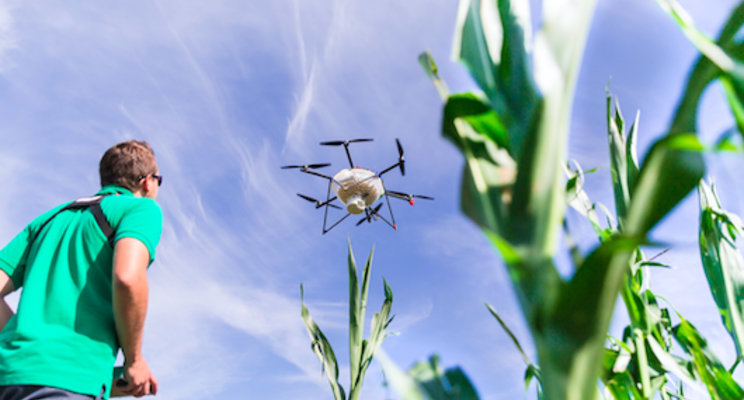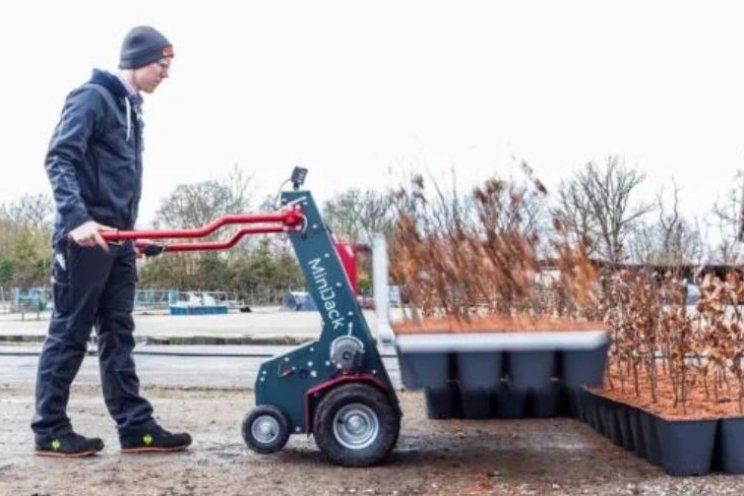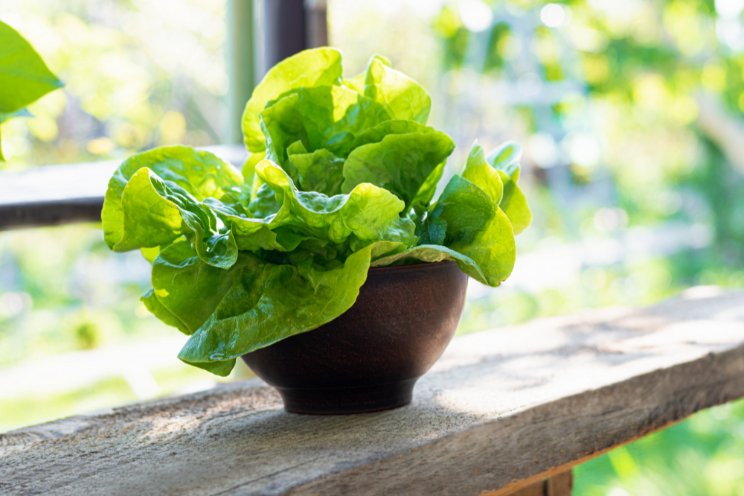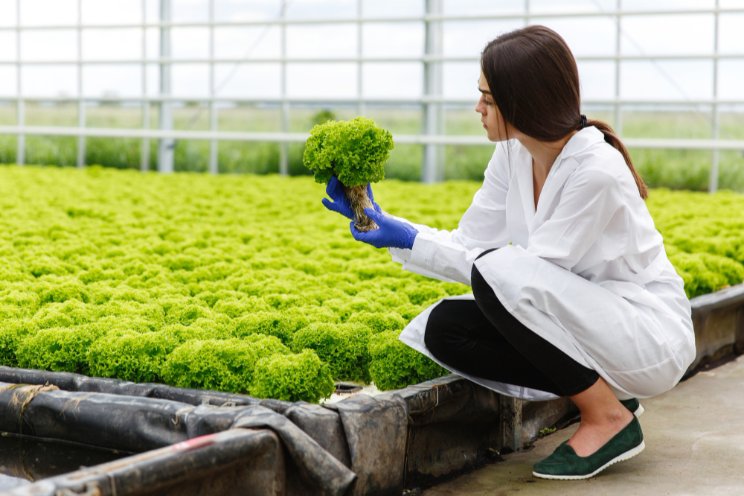BayWa delivers excellent results again in 2021
Added on 24 March 2022

Once again, more than half of the consolidated earnings were generated by BayWa r.e., which has been operating as a German stock corporation within the BayWa Group since March 2021. "I am proud that BayWa r.e., in its role as the European market leader for the energy transition, is successfully leading the charge in the fields of renewable energies. That shows how important entering this sector in 2009 was for the financial success of BayWa," says Chief Executive Officer Prof. Klaus Josef Lutz. "Despite the tense logistics situation around the world, we managed to further increase our productivity and profitability in the international Cefetra Group and Global Produce Segments."
The Group's business activities in Germany also contributed to the record results. "As a provider of essential goods and services in the fields of food, energy and building materials, we were able to cater to our customers' needs despite lockdowns and the difficult global supply chain," Prof. Klaus Josef Lutz says. "Throughout the protracted pandemic, we have constantly kept our sites open and have practically always been able to deliver thanks to our warehouses and the modern logistics in every segment, from Agri Trade & Service and Building Materials to Energy. All of our employees share credit for that."
In the German agricultural business, the changes initiated in 2019 already had a positive effect on earnings contributions in 2021. Lutz: "The reorganisation of our business in eastern Germany, along with the new approach taken in agricultural equipment service and sales and in logistics, was an important pillar of this success." The agricultural equipment business benefited from above-average sales figures for new machinery and high capacity utilisation at the Group's workshops.
The Building Materials Segment achieved stronger revenue growth than its competitors and recorded a 56% year-on-year increase in earnings in the financial year 2021. "The shift in our business model towards greater specialisation and services for the construction sector, as well as BayWa Bau Projekt GmbH, acted as significant driving factors for this positive development," according to Klaus Josef Lutz. "Our long-standing business relationships enabled us to supply our customers and be a reliable partner despite last year's turbulent conditions for materials such as wood and steel in the building materials market."
So far, the new financial year is off to a good start. At the present time, BayWa does not expect the war in Ukraine to have a material impact on its activities. Ukraine and Russia are not key sales markets for BayWa. The extent to which logistics chains may be additionally disrupted remains to be seen. Lutz: "We were well positioned with our broadly diversified procurement, storage and logistics network, even before the coronavirus pandemic. Right now, we still view continuing to make sure that people are supplied with energy, food and building materials as our top priority."
Individual segment performance
The Renewable Energies Segment set a new record in the reporting year, with an increase in revenues to €3.6 billion (2020: €2.2 billion). EBIT rose to €135.0 million (2020: €110.9 million). Alongside project business, solar trade activities proved once again to be an earnings driver. The total output of the photovoltaic (PV) modules sold increased by roughly 73%. Demand was high, particularly in Europe, the Middle East and Africa. The IPP business, in which the BayWa subsidiary BayWa r.e. AG operates selected solar parks and wind farms itself, also developed positively on the whole.
BayWa expects to see sustained tailwind for further growth in the Renewable Energies Segment in the current year. Wind and solar energy projects with a total capacity of 1.2 gigawatts are slated for completion in 2022, with already completed projects scheduled for sale in the first half of the year. Thanks in part to the political expansion targets, specifically in Europe, BayWa also anticipates a further rise in PV component sales within its solar trade activities.
Despite higher revenues, the results of the Energy Segment were down year on year, as expected. Revenues increased to €2.1 billion on account of price effects (2020: €1.7 billion). EBIT came to €17.4 million (2020: €31.8 million). Demand, especially for heating oil, cooled considerably over the course of the year due to rising costs on the back of high crude oil prices, the return to the full value added tax rate and the introduction of carbon pricing. Although BayWa sold roughly one-fifth less heating oil than in 2020, which was a record-setting year, it was able to partially compensate for the decline through higher volume for wood pellets. The company continued to expand its network of filling and charging stations for liquefied natural gas (LNG) and electromobility.
BayWa plans to keep expanding its range of CO2-optimised mobility solutions in the current year. Alongside the construction of three additional LNG filling stations, the Group has already received an order to build 75 charging parks on behalf of retail chains. BayWa also anticipates a further rise in wood pellet sales volumes. The company assumes that the high energy prices will accelerate the transformation of heating systems, with demand for heat contracting solutions and the corresponding installation contracts for building services providers expected to grow. By contrast, the high energy prices will continue to weigh down demand for heating oil and fuels.
The international agricultural trade activities in the Cefetra Group Segmentresulted in revenues of €5.0 billion in the reporting year (2020: €4.2 billion). EBIT rose to €38.8 million (2020: €21.6 million). Cefetra Group benefited from rising prices for corn and soya meal, especially in the second half of the year. The rise was due to increased demand for feedstuff grain, particularly from China, coupled with scarce supply. Trade involving specialities also saw very successful development.
BayWa expects major price fluctuations to continue in the current year on account of the war in Ukraine. The volatility will result in marketing opportunities for Cefetra Group and its global procurement network, even in the event of potential global supply bottlenecks. BayWa expects stable development over the course of the year in the specialities trade following the expansion of the portfolio in 2021 to include dairy products and milk alternatives, as well as nuts and legumes of African origin.
The Global Produce Segment faced challenges, particularly in New Zealand. Less pome fruit was available for marketing on account of hail damage during the blossom period and the coronavirus-related lack of seasonal workers. A shortage of sufficient container capacity delayed the delivery of exports from the southern hemisphere to Europe, resulting in a conflict with the new local harvest and a surplus of pome fruit. Prices, which had been high until that time, fell noticeably. Nevertheless, revenues in the Global Produce Segment increased to €0.96 billion due to price effects (2020: €0.94 billion). The rise in EBIT to €42.6 million (2020: €41.8 million) is primarily attributable to the sale of properties no longer required and the issuing of cultivation licences.
The situation in New Zealand has eased noticeably during the current harvest season. BayWa expects the export ratio to increase by 7%. In Germany, however, efforts to sell off inventory from delayed exports and the previous European harvest remain slow. As a result, BayWa expects further decreases in the price of pome fruit. In the trade with exotic fruits, the company is expanding its capacities, with marketing volumes in the segment set to rise further in the medium term.
Higher grain and agricultural input prices provided additional momentum for the ongoing restructuring of the Agri Trade & Service Segment in the financial year 2021. Revenues increased to €4.2 billion (2020: €3.6 billion). EBIT came to €12.3 million (2020: minus €14.3 million). BayWa benefited from early warehousing at favourable prices, particularly for fertilizers. The Group was then able to sell off its inventories at better margins over the further course of the year. The rising prices for agricultural commodities also resulted in opportunities in product trade activities.
BayWa expects the prices for grain and oilseed to at least remain at the level seen to date. As a consequence of the increase in land under organic cultivation, the company anticipates a decline in fertilizer and crop protection sales volumes. Demand for fertilizers is additionally being weighed down by stricter environmental regulations and the current high prices. By contrast, business involving alternative agricultural inputs and seed, as well as trade in organic products, is gaining importance. Two new BayWa sites for organic grain collection are slated for construction in eastern Bavaria and eastern Germany in 2022.
In terms of revenues, the Agricultural Equipment Segment topped the previous year's record by a slight margin to finish the reporting year at €1.90 billion (2020: €1.87 billion). EBIT fell to €48.6 million (2020: €54.4 million). The number of new machines sold was up slightly on the five-year average in 2021 but fell short of the level seen in the previous year on account of manufacturers' supply bottlenecks, leading to a high order backlog in the current year. BayWa therefore expects tractor and machinery sales to remain above average in Germany in 2022. Both the Bauernmilliarde (farmers' billion) subsidy programme and inflation are driving factors that are encouraging farmers to make increased investments in tangible goods. The resulting trend is benefiting BayWa's workshops, which saw a further rise in capacity utilisation in the reporting year.
BayWa saw an unusually strong year in its Building Materials Segment, where revenues rose to €2.1 billion due to volume and price factors (2020: €1.9 billion). EBIT increased by a clear margin to stand at €73.2 million (2020: €46.9 million). The segment benefited from sustained high demand in structural engineering, civil engineering, roofing, gardening and landscaping, dry construction, construction equipment and tools. BayWa's decidedly better inventories and ability to deliver than its competitors, coupled with the further expansion of sales and product range specialisations in 2020, played an important role in the segment's success.
In addition, BayWa Bau Projekt GmbH has proved to be an important pillar of the Building Materials Segment, having sold over 120 residential and commercial units in 2021 - four times as many as in 2020. Eight new projects were added to the project pipeline, with the proceeds set to start making a difference in the years ahead. The residential construction segment should expect a shift away from new building activities to modernisation and renovation of existing properties. The shortage of skilled labour will remain the greatest concern for the construction sector as a whole. As a result, BayWa will again focus its efforts on expanding digitalisation and industrial pre-fabrication in 2022.
Photo Courtesy of BayWa
Source: HortiBiz
More news















